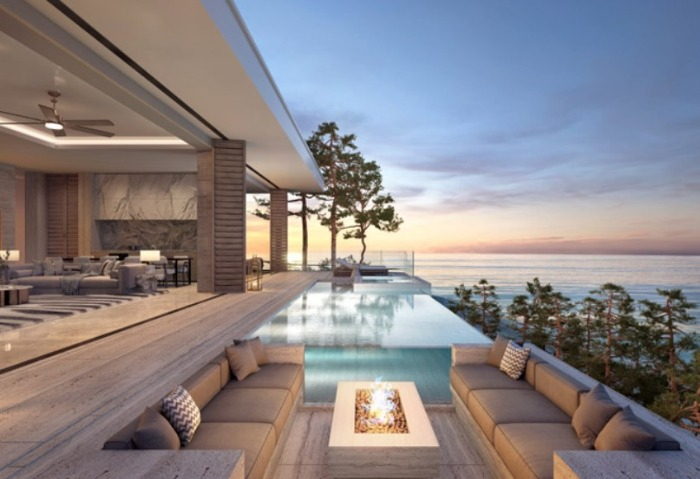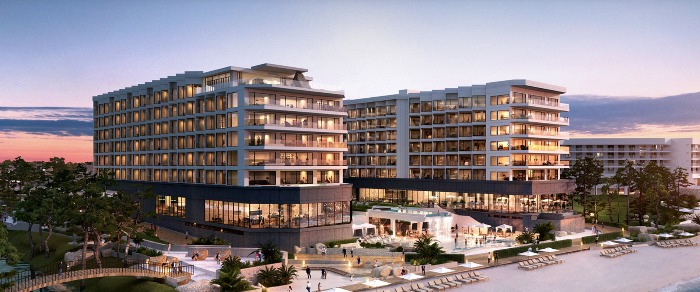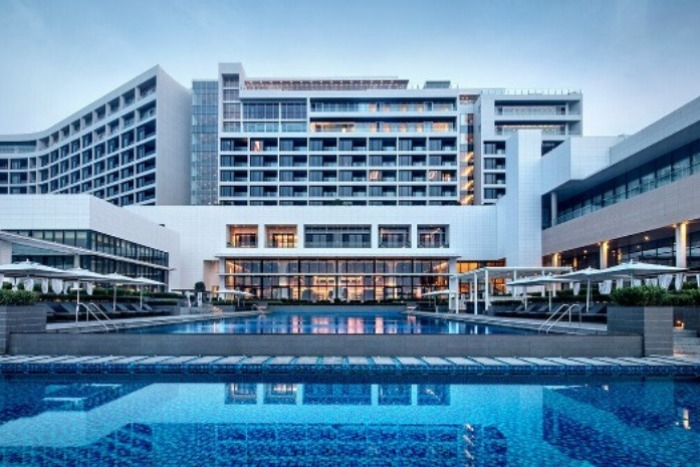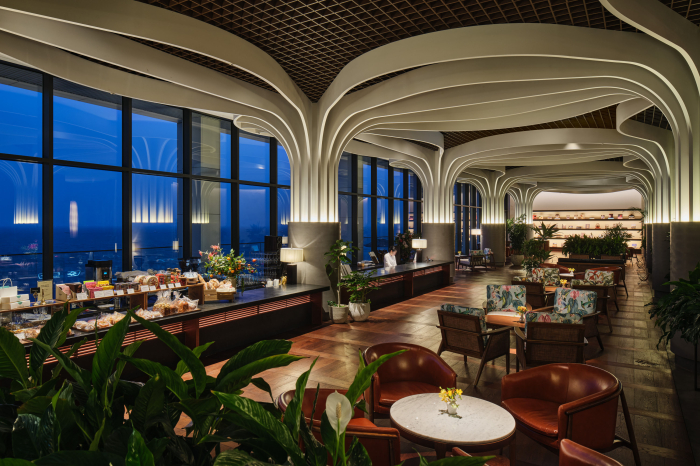Travel & Leisure
Korea’s luxury resort market blossoms despite slow economy
Ananti's opening of two premium properties has fueled interest in luxury resorts
By Feb 02, 2024 (Gmt+09:00)
3
Min read
Most Read
LG Chem to sell water filter business to Glenwood PE for $692 million


KT&G eyes overseas M&A after rejecting activist fund's offer


Kyobo Life poised to buy Japan’s SBI Group-owned savings bank


StockX in merger talks with Naver’s online reseller Kream


Meritz backs half of ex-manager’s $210 mn hedge fund



South Korea’s luxury resort market seems to operate out of sync with the economy. High-end operators are opening swanky holiday resorts in Korea and charge much higher membership prices than nearby facilities. But they feel little resistance to their price hikes.
Kensington Resort began selling memberships to Grand Kensington Seorak Beach last month, scheduled to open in Goseong, Gangwon Province, in the second half of 2025.
Its membership price of 120 million to 260 million won ($90,600-$197,000) is more than ten times that of other nearby high-end resorts such as Hanwha Resort and Sono Belle, which averages 20 million won.
Despite the eye-popping prices, Grand Kensington Seorak Beach has sold more than 80% of its 200 available memberships.
“It was the first time we offered memberships at over 100 million won and we were unsure of what the response would be to the price,” said a Kensington Resort official. “But now that we saw the strong demand, we may need to adjust the price for the remaining units.”

According to the resort industry on Friday, luxury resort memberships are selling out fast as soon as they are released. This is in stark contrast to the prolonged slump in the real estate market and a sharp decline in private spending last year.
Industry observers said the booming high-end resort market underlines the consumption trend, where wealthy individuals splurge on travel and relaxation.
Yongpyeong Resort, a domestic resort company, is slated to open a super-prime condominium within its ski resort in Pyeongchang, Gangwon Province, in March 2024. Of the four types of memberships, the two most expensive types have been sold out.
Their membership costs between 6.3 billion and 10.1 billion won.
Yongpyeong Resort is building three more luxury condominiums within the resort town and will roll out them one after another under three brands by 2028.
The hospitality company expects to rake in a total of 1.5 trillion won from membership sales of the four new resort hotels by 2030.

Hanwha Resort is preparing to build a high-end resort hotel near Seoraksan Mountain, near Yongpyeong Ski Resort.
It is aiming to start the construction in February and open by the end of next year. It is set to be its first luxury resort and be under a different brand name and ask for higher membership prices than those of its other holiday accommodations.
ANANTI EFFECT
The hotel and resort industry observers attributed the boom in the luxury resort market to the opening of Ananti Inc.'s two luxury resort hotels between 2016 and 2017, dubbing it the Ananti Effect.

The domestic hospitality company opened Ananti Chord in Gapyeong, Gyeonggi Province in 2016 and Ananti Cove in Gijang, Busan in 2017.
Ananti differentiated itself from other resorts with the exquisite interior designs of its rooms and common areas such as the lobby and swimming pool. They wowed social media users with positive reviews from visitors.
Ananti’s membership prices climbed to 160 million won in 2022 and 190 million won in 2023 on average, compared to 135 million won in 2018.
Last year, Ananti opened another mega-resort named “Village de Ananti” in Gijang, Busan, South Korea's largest port city.
In 2023, Ananti's sales are estimated at around 900 billion won, similar to Sono International’s 2022 revenue of 926.1 billion. Sono International is Ananti’s bigger rival at home.
“The luxury resort market is beginning to blossom,” said one domestic resort company head. “Resort companies will likely build high-end resorts one after another.”
South Korea's private consumption grew at a pace of 1.8% in 2023, compared to 4.1% growth in 2022, according to the Bank of Korea. Gross domestic product growth eased to 1.4%, versus 2.6% in 2022.
Write to Jae-Kwang Ahn at ahnjk@hankyung.com
Yeonhee Kim edited this article.
More to Read
-
 EconomyS.Korea to allow hiring of foreign workers in hotels, resorts
EconomyS.Korea to allow hiring of foreign workers in hotels, resortsDec 29, 2023 (Gmt+09:00)
1 Min read -

-

-
 Travel & LeisureHanwha Hotels & Resorts to work with Vietnam's Lodgis to expand overseas network
Travel & LeisureHanwha Hotels & Resorts to work with Vietnam's Lodgis to expand overseas networkFeb 01, 2023 (Gmt+09:00)
1 Min read
Comment 0
LOG IN


